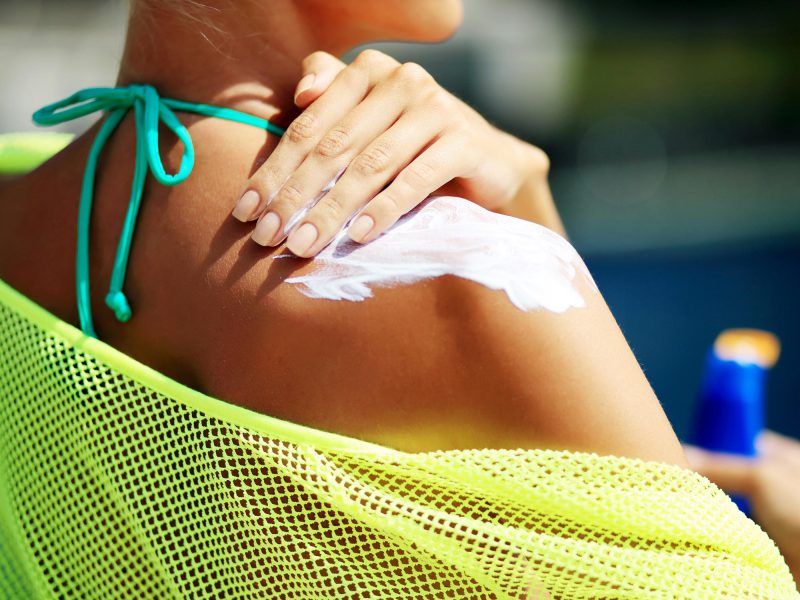
Jenny Smiechowski
First off, getting sunburned is not a healthy practice. But spending just 15 minutes a day in direct sunlight — without sunscreen — can be for most people.
Now, the key words here are “without sunscreen.” Apply, instead, a little moderation.
Because getting some unfiltered sun on your skin can actually help fight cancer….
Spending time in the sun causes your body to produce a highly potent cancer-fighter substance — vitamin D. In fact, research has shown that vitamin D actually prevents pancreatic, colorectal, breast, ovarian and prostate cancer.
That being said, there are times when sunscreen comes in handy. When you’re spending hours in the intense summer sun — like at the beach where the sun’s rays feel like a burning laser — there is no question that you need to protect yourself.
But choosing the right sunscreen creates yet another conundrum…
If you happened to read a recent analysis of sunscreens published by Consumer Reports, you might think that choosing a brand with a higher SPF would keep you safe.
But you’d be dangerously wrong. Because the chemical UV filters you find in the high SPF chemical-laden varieties could give you cancer.
Yes, in an interesting twist of irony, the sunscreens you use to prevent cancer can actually cause cancer themselves. And here’s why…
Chemical sunscreens contain chemical UV filters that are known hormone disruptors. Hormone disruptors have been linked to several cancers, but especially breast cancer.
Not to mention the fact that most chemical sunscreens also contain parabens which have been strongly linked to breast cancer.
But there’s more…
About 18 percent of beach and sport sunscreens, 17 percent of moisturizers with sunscreen and 13 percent of lip products with sunscreen also contain a form of vitamin A known as retinyl palmitate. Now even though it’s a natural antioxidant, when exposed to the sun, retinyl palmitate has actually been found to accelerate the development of skin tumors.
So clearly it’s time to make some serious decisions about the ingredients in your sunscreen. Fortunately, there are safer options out there…
Natural sunscreens are usually made with minerals like zinc oxide and titanium dioxide, neither of which are hormone disruptors or known carcinogens.
There are a lot of natural sunscreens on the market, but The Environmental Working Group, a nonprofit organization that specializes in research and advocacy related to toxic chemicals, created an extensive list of the safest sunscreens available, which includes popular natural brands like derma e, Yes to Cucumbers, the Honest Company, Juice Beauty, Burt’s Bees and Aubrey Organics.
But if you really want to know exactly what you’re putting on your skin, you can also make your own sunscreen using simple ingredients, like coconut oil, shea butter, sesame oil, aloe vera gel and zinc oxide. Check out this video for a natural, non-toxic sunscreen recipe.
Source: http://easyhealthoptions.com/when-it-comes-to-cancer-the-sun-may-be-your-best-friend/